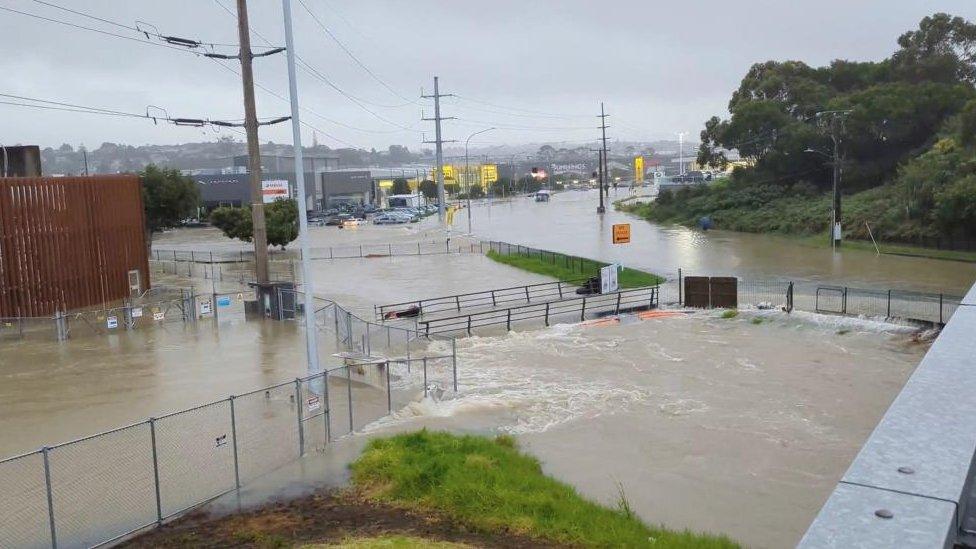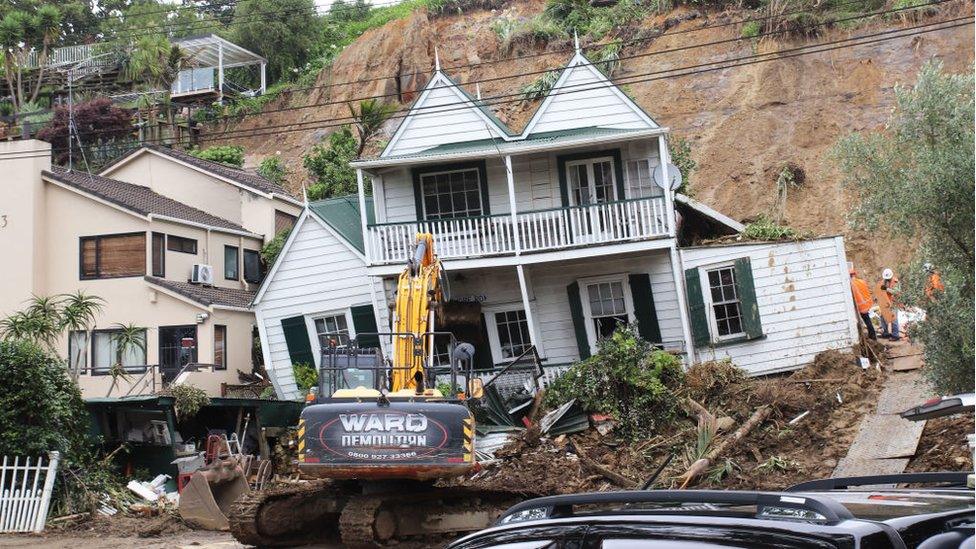Auckland floods: More heavy rain ahead for New Zealand's largest city
- Published

Auckland experienced an unprecedented amount of rainfall on Friday
People in flood-hit New Zealand are bracing for more heavy rain this week following new severe weather alerts.
At least four people have died and a state of emergency order continues in Auckland, which on Friday experienced its worst downpour on record.
About 350 people needed emergency accommodation, New Zealand's Prime Minister Chris Hipkins said.
He added there had been significant damage across Auckland and the North Island.
The newly-appointed PM also highlighted climate change's role in the extreme weather event.
"It's a 1-in-100-year weather event, and we seem to be getting a lot of them at the moment. I think people can see that there's a message in that... Climate change is real, it's with us," Mr Hipkins said on Monday.
He told national broadcaster TVNZ: "We are going to have to deal with more of these extreme weather events in the future.
"We need to be prepared for that. And we need to do everything we can to combat the challenge of climate change."
Mr Hipkins also acknowledged criticism from locals that communications over the floods had been "too few and far between".
With the unprecedented rainfall Auckland has seen since Friday, even "ordinary" torrential rain in the days ahead could cause more flooding and damage than it would usually, the city's mayor said in a tweet on Monday.
"In parts of the city, the weather looks a bit better - but, don't be fooled, our region is not out of the woods yet," Wayne Brown said.

A home that was knocked off its foundations during the floods
Many factors contribute to flooding, but a warming atmosphere caused by climate change increases the intensity and frequency of extreme rainfall. The world has already warmed by about 1.1C since the industrial era began, and temperatures will keep rising unless governments around the world make steep cuts to emissions.
The National Institute of Water and Atmospheric Research, the country's climate science body, said Friday was the wettest day on record for a number of locations in Auckland.
Footage and images online showed people trapped in waist-deep floodwater, rescuers carrying out evacuations on kayaks and grocery items floating down the aisles of several flooded supermarkets.
Allow X content?
This article contains content provided by X. We ask for your permission before anything is loaded, as they may be using cookies and other technologies. You may want to read X’s cookie policy, external and privacy policy, external before accepting. To view this content choose ‘accept and continue’.

Auckland Airport, which was temporarily closed due to damage from heavy flooding, has since reopened.
New Zealand media have identified two individuals who died in the floods. Daniel Newth, a 25-year-old arborist, died while kayaking near his North Shore home, and Daniel Mark Miller, 34, was found dead in a culvert in the Auckland suburb Wairu Valley.
New Zealand Floods: What’s causing the heavy rainfall